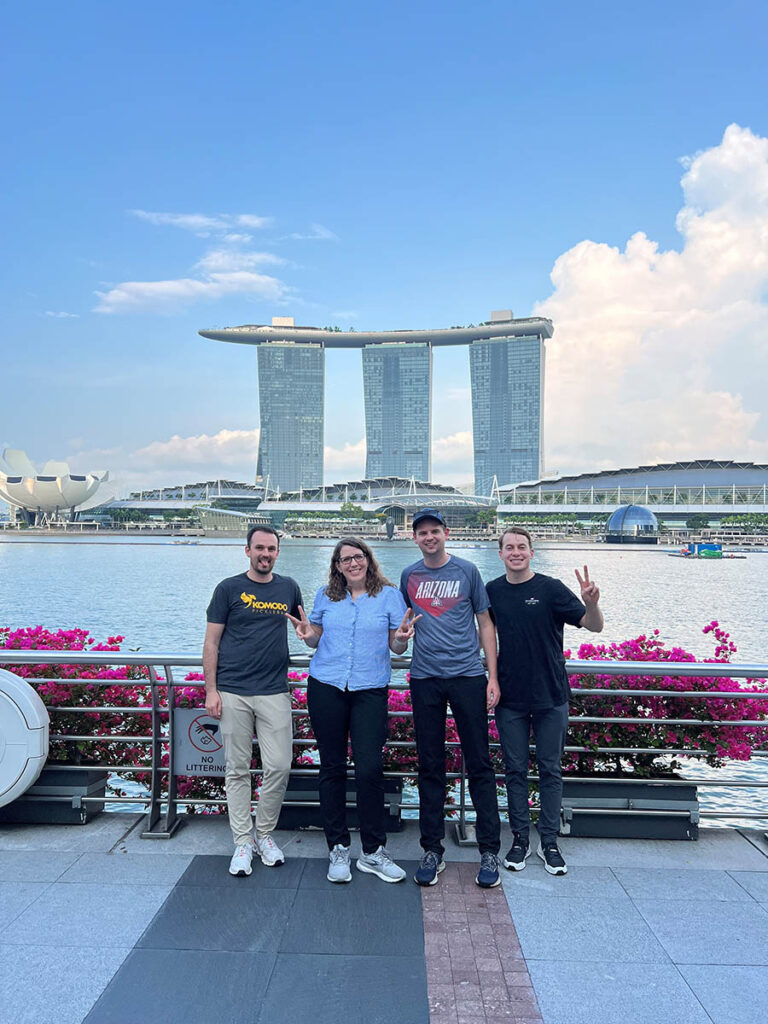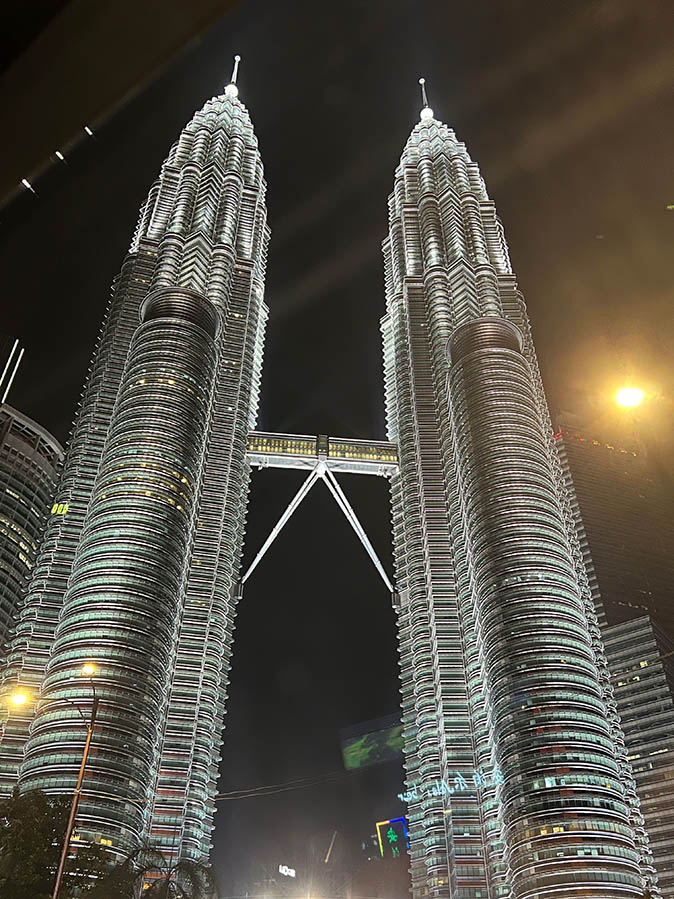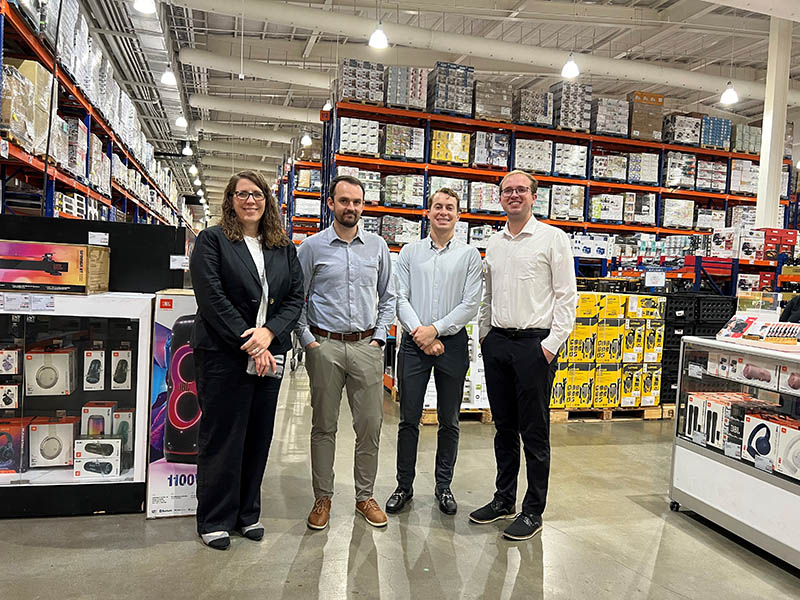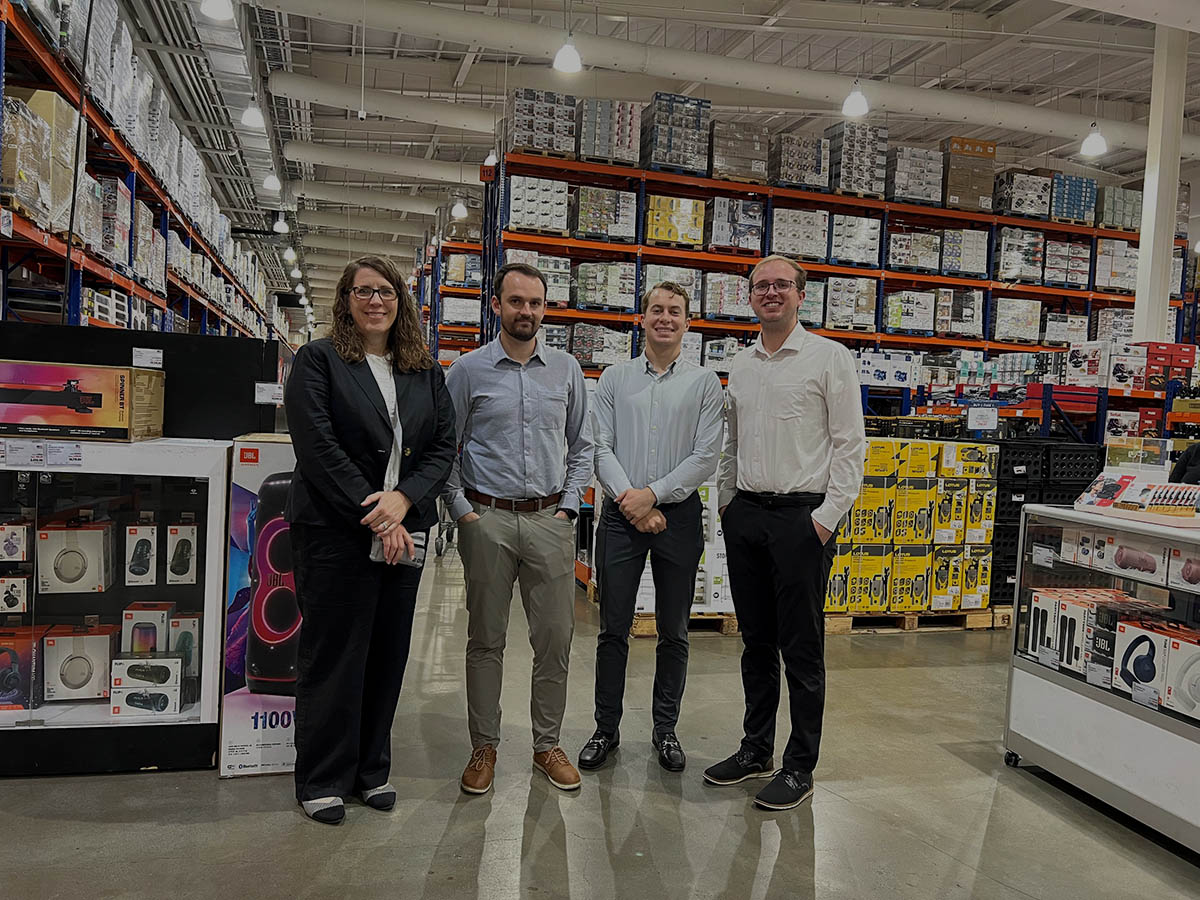Company Touch Tracker
This quarter our team engaged with 470 companies across the world, putting our trailing 12-month company touches at 1,619.
This past quarter, team members traveled domestically to New York, South Carolina, Wisconsin, Illinois, Georgia, California, Michigan, Maryland, Ohio, Washington DC, Colorado, Pennsylvania, and Texas. Internationally, team members traveled to Japan, Sweden, London, Canada, United Kingdom, Belgium, SE Asia, and Switzerland.
Southeast Asia Recap
Tyler Glauser, Research Analyst and Portfolio Manager of the Global Reach Fund, Joseph Nydegger, Research Analyst, Matt Kaelberer, Research Analyst, and Amy Johnson, Senior Manager, Client Relations, spent two weeks in Southeast Asia. Here are some of their thoughts on the trip:
We did 40 meetings across 6 countries in two weeks. Indonesia, Malaysia, Singapore, Thailand, Vietnam, and the Philippines. Despite the grind of the journey, as usual, it was a pleasure to see the world a bit, taste the food, meet people, and gain a better understanding of the nuances of the culture in each place.

China was a major topic of conversation on this trip. The impact of China and the trade concerns on the economies throughout Southeast Asia cannot be overstated. In Indonesia, brand distribution companies are recruiting Chinese manufacturers to set up capacity in Indonesia through joint investments. The hope is to nearshore manufacturing capacity and scale Chinese expertise across Indonesia. Current regulations in Indonesia include anti-dumping laws as protection against the Chinese manufacturers which are searching for locations to fill their excess capacity in the face of current and potentially increasing tariffs with the United States. Setting up domestic capacity can solve a problem for both parties. Another interesting observation in Indonesia is that the mom-and-pop retailers in a variety of industries have continued to do relatively well. It is difficult to scale a retail operation across a vast archipelago, and most of the multinational corporations have struggled to scale outside of the main Java Island.
It is interesting to contemplate the impact of the wars in distant parts of the world on SE Asia. Indonesia is a majority Muslim country and there have been boycotts on Starbucks over the US support of Israel in the conflict with Palestine. Interestingly, Skechers, which is operated by the same Indonesia company as Starbucks, has not been boycotted. People LOVE their Skechers. Other ripple effects of war are noteworthy as well, creating opportunities for companies in the region.

The Indonesian economy has had a strange couple of years. The lowest income consumers have been under intense pressure, but with an election year last year the pressure was masked by cash being injected into the market by the government. Now, as the payments from the government have stopped for a time, we believe the cracks in the economy have shown through a bit more. Things remain reasonably good for the middle- and upper-income consumers, that are disproportionately found in Jakarta and the surrounding areas. I loved Jakarta and with the new metropolitan subway system, it was much easier to get around than the last time I traveled there in 2022. It is amazing to see such a transformation in just a couple of years.
Our next stop was Malaysia. It was my first time visiting and my first observation was how similar it felt to Singapore. It was interesting to hear from some companies about the Semiconductor investments from China rippling through the region. China’s quest for semiconductor independence from the US has moved in parallel to the US’ quest for semiconductor independence from China.
My first return to Singapore since my time there in business school in 2020-21 was bittersweet. First, we stayed in the same hotel that I had quarantined in for 15 days when I first arrived there in 2020. After wrapping our first week of meetings, we finally had a minute to enjoy our surroundings. We rented bikes and rode around Marina Bay, seeing some of the gardens, and all the beautiful buildings and unique architecture. The meetings in Singapore were interesting as well. We had a fascinating discussion with the heiress to a major retail operation. She said it’s essentially a one-party democracy where the state controls all the media, sets regulations for everything, and the same people have been in power since the country’s inception. She explained how the government is developing all the residential areas, awarding a lease to one grocer and one baker and one barber, etc. in each area. From a Western, capitalist perspective, the master planning model may seem complex, but for the government of Singapore, it is one tool to potentially control development goals beyond only financial investment factors.

Joe and I spent the weekend in Thailand. Thailand is a beautiful place. The meetings were quite good with a few more actionable ideas. We were struck by how inexpensive everything was. With the Thai Baht down around 20% in the last couple of years, our meals and snacks felt like great values. It is interesting to consider how well some of the businesses we met with have done over the last several years. They have been impacted by COVID, the death of their king, and a coup. Many of these businesses are trading for remarkably low valuations, and that is compounded further by the recent weakness of the currency.
Our next stop was in Vietnam. Communism is very apparent in Vietnam. In some ways things are physically so clean, organized, and efficient, yet simultaneously there are such obvious inefficiencies. So much bureaucracy and red tape. So many rules about things that would be considered inconsequential in the West. We were also reminded once more on how important it is to understand the unique cultures around the world as a global investor. If an investment thesis hinges on dairy consumption per capita increasing and converging towards the levels of other places, it is important to note how culturally different dairy consumption is viewed and explore reasons why things might not converge with the West, or even other Asian countries. The influence of government cannot be overstated, here as in most emerging countries, in particular those with communist governments.
Finally, as we spent time in the Philippines, felt like the most lacking emerging economy of the countries we visited. Traffic in Manila was horrible. The city felt dirty and chaotic. Maybe it was simply a function of where we stayed. We believe the country, however, feels like it has found a sweet spot of GDP[1] growth. The current levels are low, but the people are entrepreneurial and hard-working. Seems likely that we could have a good run from the Philippines in the coming years.
In all, we had some productive meetings on this trip and gleaned connected global dots across SE Asia and across multiple sectors that we hope can translate into some good stock picks for our funds.
[1] GDP Growth is a measure of the gross domestic product of a country, measured by the value of final goods and services produced in a country over a given period.
